The Ultimate Guide to Hazelnuts and Peanuts: A Comparison and Exploration of Their Benefits Introduction: Hazelnuts and peanuts are two of the most popular and widely consumed nuts across the globe. They are not only delicious but also packed with essential nutrients, making them a healthy addition to any diet. This article aims to provide an extensive comparison of hazelnuts and peanuts, exploring their nutritional value and health benefits. Whether you are a food enthusiast, a health-conscious individual, or simply curious about these nuts, this guide will equip you with all the information you need. Section 1: Nutritional Profile 1.1 Hazelnuts: Hazelnuts are an excellent source of various essential nutrients, including protein, fiber, healthy fats, vitamins, and minerals. They are rich in monounsaturated fats, specifically oleic acid, which is known for its potential heart-healthy benefits. Hazelnuts are also packed with vitamin E, an antioxidant that helps protect cells from damage. Furthermore, hazelnuts contain a significant amount of folate, which is crucial for proper cell growth and development. 1.2 Peanuts: Peanuts are recognized for their high protein content, making them a popular choice among vegetarians and vegans. Like hazelnuts, peanuts are rich in healthy fats, primarily monounsaturated fats, which may help lower bad cholesterol levels. They also contain essential vitamins and minerals, including biotin, vitamin E, manganese, and copper. Peanuts are an excellent source of resveratrol, a powerful antioxidant that has been linked to numerous health benefits. Section 2: Health Benefits 2.1 Hazelnuts: Hazelnuts offer several health benefits due to their rich nutritional profile. Here are some key advantages of incorporating hazelnuts into your diet: – Heart Health: The monounsaturated fats in hazelnuts help reduce the risk of heart disease by lowering bad cholesterol levels and improving blood lipid profiles. – Antioxidant Power: Hazelnuts are packed with antioxidants, including vitamin E and phytochemicals, which help protect against cell damage and reduce inflammation. – Weight Management: Despite being calorie-dense, hazelnuts are associated with weight loss and weight maintenance due to their high fiber and protein content, promoting feelings of fullness. – Brain Health: The vitamin E content in hazelnuts plays a vital role in maintaining cognitive function and reducing the risk of age-related cognitive decline. 2.2 Peanuts: Peanuts also offer numerous health benefits, making them a valuable addition to a healthy diet. Consider the following advantages of peanuts: – Heart Health: The monounsaturated fats present in peanuts can help lower the risk of heart disease by reducing bad cholesterol levels and improving heart health indicators. – Blood Sugar Control: Peanuts have a low glycemic index, meaning they have a minimal impact on blood sugar levels. They can be beneficial for individuals with diabetes or those looking to manage blood sugar. – Anti-Inflammatory Properties: Peanuts contain resveratrol, an anti-inflammatory compound that may help reduce inflammation and protect against various chronic diseases. –
nuts
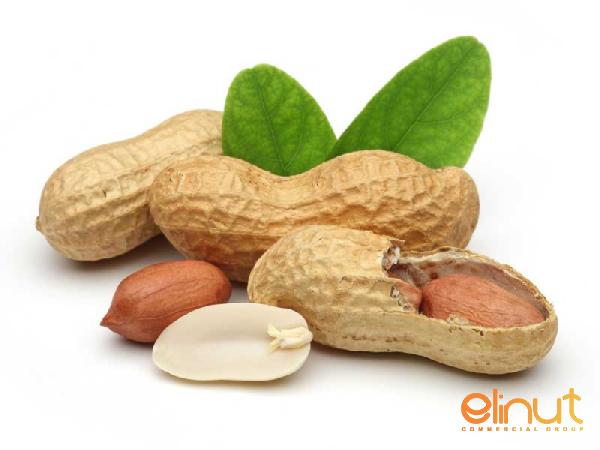 Digestive Health: The high fiber content in peanuts supports a healthy digestive system by promoting regular bowel movements and preventing constipation. Section 3: Culinary Uses and Varieties 3.1 Hazelnuts: Hazelnuts are widely used in both sweet and savory dishes, offering a delightful crunch and rich nutty flavor. They can be enjoyed in many forms, including: – Roasted and Salted: Roasting hazelnuts enhances their natural flavors and makes them a delicious snack on their own or used in recipes. – Hazelnut Butter: Similar to peanut butter, hazelnut butter is a creamy and versatile spread that can be used in sandwiches, baked goods, or as a dip for fruits and veggies. – Baked Goods: Hazelnuts are a classic addition to many baked goods, including cookies, cakes, and pastries, providing a delightful crunch and flavor. 3.2 Peanuts: Peanuts are incredibly versatile and are used in various culinary applications around the world. Some common uses of peanuts include: – Peanut Butter: Arguably the most popular form of peanuts, peanut butter is a versatile and delicious spread used in sandwiches, smoothies, desserts, and savory dishes. – Snack: Roasted, salted, or flavored peanuts are a popular snack choice. They can be found in trail mixes, as well as enjoyed on their own during parties or on-the-go. – Cooking Oil: Peanut oil, derived from peanuts, is commonly used in Asian cuisines for stir-frying, deep-frying, or as a flavorful addition to sauces and marinades. – Desserts: Peanuts are often incorporated into indulgent desserts such as candies, ice cream, and chocolate bars, adding a satisfying crunch and flavor. Conclusion: Both hazelnuts and peanuts offer numerous health benefits and a wide range of culinary uses. Hazelnuts are known for their heart-healthy benefits, antioxidant properties, and weight management potential. On the other hand, peanuts are rich in protein, heart-healthy fats, and have anti-inflammatory properties. Whether you prefer the rich and buttery flavor of hazelnuts or the versatility of peanuts, incorporating these nuts into your diet can provide a wealth of nutritional advantages and enhance the taste and texture of your culinary creations. So go ahead, experiment with these delightful nuts, and enjoy the health benefits they have to offer.Title: The Ultimate Guide to Hazelnuts and Peanuts: A Comparison and Exploration of Their Benefits Introduction: Hazelnuts and peanuts are two of the most popular and widely consumed nuts across the globe. They are not only delicious but also packed with essential nutrients, making them a healthy addition to any diet. This article aims to provide an extensive comparison of hazelnuts and peanuts, exploring their nutritional value and health benefits. Whether you are a food enthusiast, a health-conscious individual, or simply curious about these nuts, this guide will equip you with all the information you need. 1. Nutritional Profile: Both hazelnuts and peanuts offer various essential nutrients, but their compositions differ slightly. Hazelnuts: Hazelnuts are an excellent source of various essential nutrients, including protein, fiber, healthy fats, vitamins, and minerals. They are rich in monounsaturated fats, specifically oleic acid, which is known for its potential heart-healthy benefits. Hazelnuts are also packed with vitamin E, an antioxidant that helps protect cells from damage.
Digestive Health: The high fiber content in peanuts supports a healthy digestive system by promoting regular bowel movements and preventing constipation. Section 3: Culinary Uses and Varieties 3.1 Hazelnuts: Hazelnuts are widely used in both sweet and savory dishes, offering a delightful crunch and rich nutty flavor. They can be enjoyed in many forms, including: – Roasted and Salted: Roasting hazelnuts enhances their natural flavors and makes them a delicious snack on their own or used in recipes. – Hazelnut Butter: Similar to peanut butter, hazelnut butter is a creamy and versatile spread that can be used in sandwiches, baked goods, or as a dip for fruits and veggies. – Baked Goods: Hazelnuts are a classic addition to many baked goods, including cookies, cakes, and pastries, providing a delightful crunch and flavor. 3.2 Peanuts: Peanuts are incredibly versatile and are used in various culinary applications around the world. Some common uses of peanuts include: – Peanut Butter: Arguably the most popular form of peanuts, peanut butter is a versatile and delicious spread used in sandwiches, smoothies, desserts, and savory dishes. – Snack: Roasted, salted, or flavored peanuts are a popular snack choice. They can be found in trail mixes, as well as enjoyed on their own during parties or on-the-go. – Cooking Oil: Peanut oil, derived from peanuts, is commonly used in Asian cuisines for stir-frying, deep-frying, or as a flavorful addition to sauces and marinades. – Desserts: Peanuts are often incorporated into indulgent desserts such as candies, ice cream, and chocolate bars, adding a satisfying crunch and flavor. Conclusion: Both hazelnuts and peanuts offer numerous health benefits and a wide range of culinary uses. Hazelnuts are known for their heart-healthy benefits, antioxidant properties, and weight management potential. On the other hand, peanuts are rich in protein, heart-healthy fats, and have anti-inflammatory properties. Whether you prefer the rich and buttery flavor of hazelnuts or the versatility of peanuts, incorporating these nuts into your diet can provide a wealth of nutritional advantages and enhance the taste and texture of your culinary creations. So go ahead, experiment with these delightful nuts, and enjoy the health benefits they have to offer.Title: The Ultimate Guide to Hazelnuts and Peanuts: A Comparison and Exploration of Their Benefits Introduction: Hazelnuts and peanuts are two of the most popular and widely consumed nuts across the globe. They are not only delicious but also packed with essential nutrients, making them a healthy addition to any diet. This article aims to provide an extensive comparison of hazelnuts and peanuts, exploring their nutritional value and health benefits. Whether you are a food enthusiast, a health-conscious individual, or simply curious about these nuts, this guide will equip you with all the information you need. 1. Nutritional Profile: Both hazelnuts and peanuts offer various essential nutrients, but their compositions differ slightly. Hazelnuts: Hazelnuts are an excellent source of various essential nutrients, including protein, fiber, healthy fats, vitamins, and minerals. They are rich in monounsaturated fats, specifically oleic acid, which is known for its potential heart-healthy benefits. Hazelnuts are also packed with vitamin E, an antioxidant that helps protect cells from damage.
Specifications of nuts
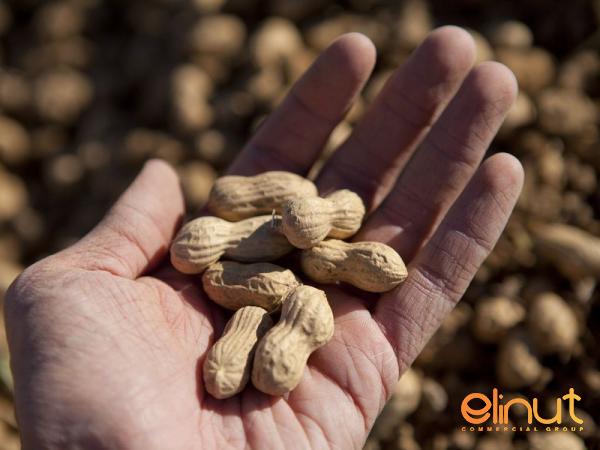 Furthermore, hazelnuts contain a significant amount of folate, which is crucial for proper cell growth and development. Peanuts: Peanuts are recognized for their high protein content, making them a popular choice among vegetarians and vegans. Like hazelnuts, peanuts are rich in healthy fats, primarily monounsaturated fats, which may help lower bad cholesterol levels. They also contain essential vitamins and minerals, including biotin, vitamin E, manganese, and copper. Peanuts are an excellent source of resveratrol, a powerful antioxidant that has been linked to numerous health benefits. 2. Health Benefits: Both hazelnuts and peanuts offer unique health benefits due to their rich nutritional profiles. Hazelnuts: Hazelnuts offer several health benefits due to their rich nutritional profile. Here are some key advantages of incorporating hazelnuts into your diet: – Heart Health: The monounsaturated fats in hazelnuts help reduce the risk of heart disease by lowering bad cholesterol levels and improving blood lipid profiles. – Antioxidant Power: Hazelnuts are packed with antioxidants, including vitamin E and phytochemicals, which help protect against cell damage and reduce inflammation. – Weight Management: Despite being calorie-dense, hazelnuts are associated with weight loss and weight maintenance due to their high fiber and protein content, promoting feelings of fullness. – Brain Health: The vitamin E content in hazelnuts plays a vital role in maintaining cognitive function and reducing the risk of age-related cognitive decline. Peanuts: Peanuts also offer numerous health benefits, making them a valuable addition to a healthy diet. Consider the following advantages of peanuts: – Heart Health: The monounsaturated fats present in peanuts can help lower the risk of heart disease by reducing bad cholesterol levels and improving heart health indicators. – Blood Sugar Control: Peanuts have a low glycemic index, meaning they have a minimal impact on blood sugar levels. They can be beneficial for individuals with diabetes or those looking to manage blood sugar. – Anti-Inflammatory Properties: Peanuts contain resveratrol, an anti-inflammatory compound that may help reduce inflammation and protect against various chronic diseases. – Digestive Health: The high fiber content in peanuts supports a healthy digestive system by promoting regular bowel movements and preventing constipation. 3. Culinary Uses and Varieties: Both hazelnuts and peanuts offer a wide range of culinary applications, showcasing their versatility and delicious flavors. Hazelnuts: Hazelnuts are widely used in both sweet and savory dishes, offering a delightful crunch and rich nutty flavor. They can be enjoyed in many forms, including: – Roasted and Salted: Roasting hazelnuts enhances their natural flavors and makes them a delicious snack on their own or used in recipes. – Hazelnut Butter: Similar to peanut butter, hazelnut butter is a creamy and versatile spread that can be used in sandwiches, baked goods, or as a dip for fruits and veggies. – Baked Goods: Hazelnuts are a classic addition to many baked goods, including cookies, cakes, and pastries, providing a delightful crunch and flavor. Peanuts: Peanuts are incredibly versatile and are used in various culinary applications around the world. Some common uses of peanuts include: – Peanut Butter: Arguably the most popular form of peanuts, peanut butter is a versatile and delicious spread used in sandwiches, smoothies, desserts, and savory dishes. – Snack: Roasted, salted, or flavored peanuts are a popular snack choice. They can be found in trail mixes, as well as enjoyed on their own during parties or on-the-go. – Cooking Oil: Peanut oil, derived from peanuts, is commonly used in Asian cuisines for stir-frying, deep-frying, or as a flavorful addition to sauces and marinades. – Desserts: Peanuts are often incorporated into indulgent desserts such as candies, ice cream, and chocolate bars, adding a satisfying crunch and flavor. 4. Hazelnuts and Peanuts in the Food Industry: Hazelnuts and peanuts play a significant role in the food industry, providing flavor, texture, and nutritional benefits to various products. – Confectionery: Hazelnuts and peanuts are commonly used in the production of chocolates, nougat, pralines, and other confectionery items. They add a delightful crunch, enhance flavor, and complement the sweetness of the treats. –
Furthermore, hazelnuts contain a significant amount of folate, which is crucial for proper cell growth and development. Peanuts: Peanuts are recognized for their high protein content, making them a popular choice among vegetarians and vegans. Like hazelnuts, peanuts are rich in healthy fats, primarily monounsaturated fats, which may help lower bad cholesterol levels. They also contain essential vitamins and minerals, including biotin, vitamin E, manganese, and copper. Peanuts are an excellent source of resveratrol, a powerful antioxidant that has been linked to numerous health benefits. 2. Health Benefits: Both hazelnuts and peanuts offer unique health benefits due to their rich nutritional profiles. Hazelnuts: Hazelnuts offer several health benefits due to their rich nutritional profile. Here are some key advantages of incorporating hazelnuts into your diet: – Heart Health: The monounsaturated fats in hazelnuts help reduce the risk of heart disease by lowering bad cholesterol levels and improving blood lipid profiles. – Antioxidant Power: Hazelnuts are packed with antioxidants, including vitamin E and phytochemicals, which help protect against cell damage and reduce inflammation. – Weight Management: Despite being calorie-dense, hazelnuts are associated with weight loss and weight maintenance due to their high fiber and protein content, promoting feelings of fullness. – Brain Health: The vitamin E content in hazelnuts plays a vital role in maintaining cognitive function and reducing the risk of age-related cognitive decline. Peanuts: Peanuts also offer numerous health benefits, making them a valuable addition to a healthy diet. Consider the following advantages of peanuts: – Heart Health: The monounsaturated fats present in peanuts can help lower the risk of heart disease by reducing bad cholesterol levels and improving heart health indicators. – Blood Sugar Control: Peanuts have a low glycemic index, meaning they have a minimal impact on blood sugar levels. They can be beneficial for individuals with diabetes or those looking to manage blood sugar. – Anti-Inflammatory Properties: Peanuts contain resveratrol, an anti-inflammatory compound that may help reduce inflammation and protect against various chronic diseases. – Digestive Health: The high fiber content in peanuts supports a healthy digestive system by promoting regular bowel movements and preventing constipation. 3. Culinary Uses and Varieties: Both hazelnuts and peanuts offer a wide range of culinary applications, showcasing their versatility and delicious flavors. Hazelnuts: Hazelnuts are widely used in both sweet and savory dishes, offering a delightful crunch and rich nutty flavor. They can be enjoyed in many forms, including: – Roasted and Salted: Roasting hazelnuts enhances their natural flavors and makes them a delicious snack on their own or used in recipes. – Hazelnut Butter: Similar to peanut butter, hazelnut butter is a creamy and versatile spread that can be used in sandwiches, baked goods, or as a dip for fruits and veggies. – Baked Goods: Hazelnuts are a classic addition to many baked goods, including cookies, cakes, and pastries, providing a delightful crunch and flavor. Peanuts: Peanuts are incredibly versatile and are used in various culinary applications around the world. Some common uses of peanuts include: – Peanut Butter: Arguably the most popular form of peanuts, peanut butter is a versatile and delicious spread used in sandwiches, smoothies, desserts, and savory dishes. – Snack: Roasted, salted, or flavored peanuts are a popular snack choice. They can be found in trail mixes, as well as enjoyed on their own during parties or on-the-go. – Cooking Oil: Peanut oil, derived from peanuts, is commonly used in Asian cuisines for stir-frying, deep-frying, or as a flavorful addition to sauces and marinades. – Desserts: Peanuts are often incorporated into indulgent desserts such as candies, ice cream, and chocolate bars, adding a satisfying crunch and flavor. 4. Hazelnuts and Peanuts in the Food Industry: Hazelnuts and peanuts play a significant role in the food industry, providing flavor, texture, and nutritional benefits to various products. – Confectionery: Hazelnuts and peanuts are commonly used in the production of chocolates, nougat, pralines, and other confectionery items. They add a delightful crunch, enhance flavor, and complement the sweetness of the treats. –
Buy nuts
 Baked Goods: Both hazelnuts and peanuts are commonly used in the baking industry to enhance the flavor and texture of bread, cakes, cookies, and pastries. They can be used as toppings, fillings, or incorporated into the dough itself. – Snack Foods: Peanuts, in particular, are widely used in the snack food industry. Roasted, salted, or flavored peanuts are a popular choice for packaging as standalone snacks or in combination with other ingredients in trail mixes and nut-based bars. – Nut Butters: Hazelnut and peanut butter are popular spreads that are widely used in the food industry. They are used in various products, including sandwiches, baked goods, protein bars, and shakes. 5. Hazelnuts and Peanuts in the Health and Beauty Industry: The health and beauty industry has also recognized the benefits of hazelnuts and peanuts, incorporating them into a range of products. – Skincare: The high vitamin E content in hazelnuts and peanuts makes them excellent ingredients for skincare products. They are often used in creams, lotions, and oils to moisturize and protect the skin from damage caused by free radicals. – Haircare: Various haircare products, such as shampoos, conditioners, and serums, contain hazelnut and peanut oils due to their nourishing properties. These oils help promote healthy hair growth, add shine, and prevent dryness. – Nutritional Supplements: Hazelnuts and peanuts are often used as ingredients in nutritional supplements, including protein bars and shakes, providing a natural and healthy source of protein, healthy fats, and other vital nutrients. Conclusion: Hazelnuts and peanuts not only offer exceptional flavor and versatility in various culinary creations but also provide numerous health benefits. Hazelnuts are known for their heart-healthy benefits, antioxidant properties, and potential weight management effects. Peanuts, on the other hand, are rich in protein, heart-healthy fats, and possess anti-inflammatory properties. Incorporating these nuts into your diet and utilizing them in the food, health, and beauty industries can help you reap the rewards of their rich nutritional content. So, whether you’re enjoying a handful as a snack, spreading nut butter on your toast, or incorporating them into your favorite recipes, hazelnuts and peanuts are an excellent choice for both taste and nutrition.The Ultimate Guide to Hazelnuts and Peanuts: A Comparison and Exploration of Their Benefits Introduction: Hazelnuts and peanuts are two of the most popular and widely consumed nuts across the globe. They are not only delicious but also packed with essential nutrients, making them a healthy addition to any diet. This article aims to provide an extensive comparison of hazelnuts and peanuts, exploring their nutritional value and health benefits. Whether you are a food enthusiast, a health-conscious individual, or simply curious about these nuts, this guide will equip you with all the information you need. Section 1: Nutritional Profile 1.1 Hazelnuts: Hazelnuts are an excellent source of various essential nutrients, including protein, fiber, healthy fats, vitamins, and minerals. They are rich in monounsaturated fats, specifically oleic acid, which is known for its potential heart-healthy benefits. Hazelnuts are also packed with vitamin E, an antioxidant that helps protect cells from damage. Furthermore, hazelnuts contain a significant amount of folate, which is crucial for proper cell growth and development. 1.2 Peanuts: Peanuts are recognized for their high protein content, making them a popular choice among vegetarians and vegans. Like hazelnuts, peanuts are rich in healthy fats, primarily monounsaturated fats, which may help lower bad cholesterol levels. They also contain essential vitamins and minerals, including biotin, vitamin E, manganese, and copper. Peanuts are an excellent source of resveratrol, a powerful antioxidant that has been linked to numerous health benefits. Section 2: Health Benefits 2.1 Hazelnuts: Hazelnuts offer several health benefits due to their rich nutritional profile. Here are some key advantages of incorporating hazelnuts into your diet: – Heart Health: The monounsaturated fats in hazelnuts help reduce the risk of heart disease by lowering bad cholesterol levels and improving blood lipid profiles. – Antioxidant Power: Hazelnuts are packed with antioxidants, including vitamin E and phytochemicals, which help protect against cell damage and reduce inflammation. – Weight Management: Despite being calorie-dense, hazelnuts are associated with weight loss and weight maintenance due to their high fiber and protein content, promoting feelings of fullness. – Brain Health: The vitamin E content in hazelnuts plays a vital role in maintaining cognitive function and reducing the risk of age-related cognitive decline. 2.2 Peanuts: Peanuts also offer numerous health benefits, making them a valuable addition to a healthy diet. Consider the following advantages of peanuts: – Heart Health: The monounsaturated fats present in peanuts can help lower the risk of heart disease by reducing bad cholesterol levels and improving heart health indicators. – Blood Sugar Control: Peanuts have a low glycemic index, meaning they have a minimal impact on blood sugar levels. They can be beneficial for individuals with diabetes or those looking to manage blood sugar. – Anti-Inflammatory Properties: Peanuts contain resveratrol, an anti-inflammatory compound that may help reduce inflammation and protect against various chronic diseases. – Digestive Health: The high fiber content in peanuts supports a healthy digestive system by promoting regular bowel movements and preventing constipation. Section 3: Culinary Uses and Varieties 3.1 Hazelnuts: Hazelnuts are widely used in both sweet and savory dishes, offering a delightful crunch and rich nutty flavor. They can be enjoyed in many forms, including: – Roasted and Salted: Roasting hazelnuts enhances their natural flavors and makes them a delicious snack on their own or used in recipes. – Hazelnut Butter: Similar to peanut butter, hazelnut butter is a creamy and versatile spread that can be used in sandwiches, baked goods, or as a dip for fruits and veggies. – Baked Goods: Hazelnuts are a classic addition to many baked goods, including cookies, cakes, and pastries, providing a delightful crunch and flavor. 3.2 Peanuts: Peanuts are incredibly versatile and are used in various culinary applications around the world. Some common uses of peanuts include: – Peanut Butter: Arguably the most popular form of peanuts, peanut butter is a versatile and delicious spread used in sandwiches, smoothies, desserts, and savory dishes. – Snack: Roasted, salted, or flavored peanuts are a popular snack choice. They can be found in trail mixes, as well as enjoyed on their own during parties or on-the-go. – Cooking Oil: Peanut oil, derived from peanuts, is commonly used in Asian cuisines for stir-frying, deep-frying, or as a flavorful addition to sauces and marinades. – Desserts: Peanuts are often incorporated into indulgent desserts such as candies, ice cream, and chocolate bars, adding a satisfying crunch and flavor. Conclusion: Both hazelnuts and peanuts offer numerous health benefits and a wide range of culinary uses. Hazelnuts are known for their heart-healthy benefits, antioxidant properties, and weight management potential. On the other hand, peanuts are rich in protein, heart-healthy fats, and have anti-inflammatory properties. Whether you prefer the rich and buttery flavor of hazelnuts or the versatility of peanuts, incorporating these nuts into your diet can provide a wealth of nutritional advantages and enhance the taste and texture of your culinary creations. So go ahead, experiment with these delightful nuts, and enjoy the health benefits they have to offer.Title: The Ultimate Guide to Hazelnuts and Peanuts: A Comparison and Exploration of Their Benefits Introduction: Hazelnuts and peanuts are two of the most popular and widely consumed nuts across the globe. They are not only delicious but also packed with essential nutrients, making them a healthy addition to any diet.
Baked Goods: Both hazelnuts and peanuts are commonly used in the baking industry to enhance the flavor and texture of bread, cakes, cookies, and pastries. They can be used as toppings, fillings, or incorporated into the dough itself. – Snack Foods: Peanuts, in particular, are widely used in the snack food industry. Roasted, salted, or flavored peanuts are a popular choice for packaging as standalone snacks or in combination with other ingredients in trail mixes and nut-based bars. – Nut Butters: Hazelnut and peanut butter are popular spreads that are widely used in the food industry. They are used in various products, including sandwiches, baked goods, protein bars, and shakes. 5. Hazelnuts and Peanuts in the Health and Beauty Industry: The health and beauty industry has also recognized the benefits of hazelnuts and peanuts, incorporating them into a range of products. – Skincare: The high vitamin E content in hazelnuts and peanuts makes them excellent ingredients for skincare products. They are often used in creams, lotions, and oils to moisturize and protect the skin from damage caused by free radicals. – Haircare: Various haircare products, such as shampoos, conditioners, and serums, contain hazelnut and peanut oils due to their nourishing properties. These oils help promote healthy hair growth, add shine, and prevent dryness. – Nutritional Supplements: Hazelnuts and peanuts are often used as ingredients in nutritional supplements, including protein bars and shakes, providing a natural and healthy source of protein, healthy fats, and other vital nutrients. Conclusion: Hazelnuts and peanuts not only offer exceptional flavor and versatility in various culinary creations but also provide numerous health benefits. Hazelnuts are known for their heart-healthy benefits, antioxidant properties, and potential weight management effects. Peanuts, on the other hand, are rich in protein, heart-healthy fats, and possess anti-inflammatory properties. Incorporating these nuts into your diet and utilizing them in the food, health, and beauty industries can help you reap the rewards of their rich nutritional content. So, whether you’re enjoying a handful as a snack, spreading nut butter on your toast, or incorporating them into your favorite recipes, hazelnuts and peanuts are an excellent choice for both taste and nutrition.The Ultimate Guide to Hazelnuts and Peanuts: A Comparison and Exploration of Their Benefits Introduction: Hazelnuts and peanuts are two of the most popular and widely consumed nuts across the globe. They are not only delicious but also packed with essential nutrients, making them a healthy addition to any diet. This article aims to provide an extensive comparison of hazelnuts and peanuts, exploring their nutritional value and health benefits. Whether you are a food enthusiast, a health-conscious individual, or simply curious about these nuts, this guide will equip you with all the information you need. Section 1: Nutritional Profile 1.1 Hazelnuts: Hazelnuts are an excellent source of various essential nutrients, including protein, fiber, healthy fats, vitamins, and minerals. They are rich in monounsaturated fats, specifically oleic acid, which is known for its potential heart-healthy benefits. Hazelnuts are also packed with vitamin E, an antioxidant that helps protect cells from damage. Furthermore, hazelnuts contain a significant amount of folate, which is crucial for proper cell growth and development. 1.2 Peanuts: Peanuts are recognized for their high protein content, making them a popular choice among vegetarians and vegans. Like hazelnuts, peanuts are rich in healthy fats, primarily monounsaturated fats, which may help lower bad cholesterol levels. They also contain essential vitamins and minerals, including biotin, vitamin E, manganese, and copper. Peanuts are an excellent source of resveratrol, a powerful antioxidant that has been linked to numerous health benefits. Section 2: Health Benefits 2.1 Hazelnuts: Hazelnuts offer several health benefits due to their rich nutritional profile. Here are some key advantages of incorporating hazelnuts into your diet: – Heart Health: The monounsaturated fats in hazelnuts help reduce the risk of heart disease by lowering bad cholesterol levels and improving blood lipid profiles. – Antioxidant Power: Hazelnuts are packed with antioxidants, including vitamin E and phytochemicals, which help protect against cell damage and reduce inflammation. – Weight Management: Despite being calorie-dense, hazelnuts are associated with weight loss and weight maintenance due to their high fiber and protein content, promoting feelings of fullness. – Brain Health: The vitamin E content in hazelnuts plays a vital role in maintaining cognitive function and reducing the risk of age-related cognitive decline. 2.2 Peanuts: Peanuts also offer numerous health benefits, making them a valuable addition to a healthy diet. Consider the following advantages of peanuts: – Heart Health: The monounsaturated fats present in peanuts can help lower the risk of heart disease by reducing bad cholesterol levels and improving heart health indicators. – Blood Sugar Control: Peanuts have a low glycemic index, meaning they have a minimal impact on blood sugar levels. They can be beneficial for individuals with diabetes or those looking to manage blood sugar. – Anti-Inflammatory Properties: Peanuts contain resveratrol, an anti-inflammatory compound that may help reduce inflammation and protect against various chronic diseases. – Digestive Health: The high fiber content in peanuts supports a healthy digestive system by promoting regular bowel movements and preventing constipation. Section 3: Culinary Uses and Varieties 3.1 Hazelnuts: Hazelnuts are widely used in both sweet and savory dishes, offering a delightful crunch and rich nutty flavor. They can be enjoyed in many forms, including: – Roasted and Salted: Roasting hazelnuts enhances their natural flavors and makes them a delicious snack on their own or used in recipes. – Hazelnut Butter: Similar to peanut butter, hazelnut butter is a creamy and versatile spread that can be used in sandwiches, baked goods, or as a dip for fruits and veggies. – Baked Goods: Hazelnuts are a classic addition to many baked goods, including cookies, cakes, and pastries, providing a delightful crunch and flavor. 3.2 Peanuts: Peanuts are incredibly versatile and are used in various culinary applications around the world. Some common uses of peanuts include: – Peanut Butter: Arguably the most popular form of peanuts, peanut butter is a versatile and delicious spread used in sandwiches, smoothies, desserts, and savory dishes. – Snack: Roasted, salted, or flavored peanuts are a popular snack choice. They can be found in trail mixes, as well as enjoyed on their own during parties or on-the-go. – Cooking Oil: Peanut oil, derived from peanuts, is commonly used in Asian cuisines for stir-frying, deep-frying, or as a flavorful addition to sauces and marinades. – Desserts: Peanuts are often incorporated into indulgent desserts such as candies, ice cream, and chocolate bars, adding a satisfying crunch and flavor. Conclusion: Both hazelnuts and peanuts offer numerous health benefits and a wide range of culinary uses. Hazelnuts are known for their heart-healthy benefits, antioxidant properties, and weight management potential. On the other hand, peanuts are rich in protein, heart-healthy fats, and have anti-inflammatory properties. Whether you prefer the rich and buttery flavor of hazelnuts or the versatility of peanuts, incorporating these nuts into your diet can provide a wealth of nutritional advantages and enhance the taste and texture of your culinary creations. So go ahead, experiment with these delightful nuts, and enjoy the health benefits they have to offer.Title: The Ultimate Guide to Hazelnuts and Peanuts: A Comparison and Exploration of Their Benefits Introduction: Hazelnuts and peanuts are two of the most popular and widely consumed nuts across the globe. They are not only delicious but also packed with essential nutrients, making them a healthy addition to any diet.
nuts + buy and sell
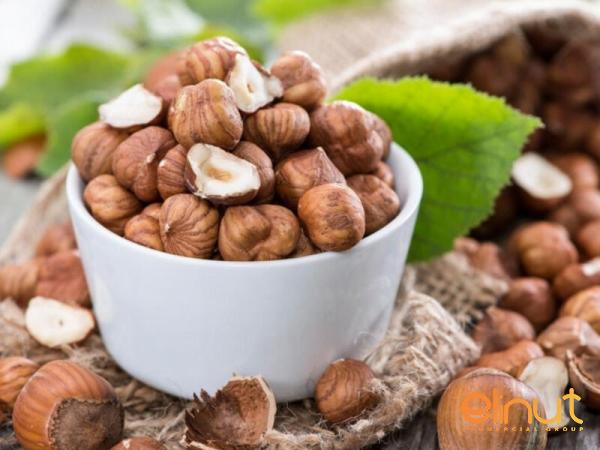 This article aims to provide an extensive comparison of hazelnuts and peanuts, exploring their nutritional value and health benefits. Whether you are a food enthusiast, a health-conscious individual, or simply curious about these nuts, this guide will equip you with all the information you need. 1. Nutritional Profile: Both hazelnuts and peanuts offer various essential nutrients, but their compositions differ slightly. Hazelnuts: Hazelnuts are an excellent source of various essential nutrients, including protein, fiber, healthy fats, vitamins, and minerals. They are rich in monounsaturated fats, specifically oleic acid, which is known for its potential heart-healthy benefits. Hazelnuts are also packed with vitamin E, an antioxidant that helps protect cells from damage. Furthermore, hazelnuts contain a significant amount of folate, which is crucial for proper cell growth and development. Peanuts: Peanuts are recognized for their high protein content, making them a popular choice among vegetarians and vegans. Like hazelnuts, peanuts are rich in healthy fats, primarily monounsaturated fats, which may help lower bad cholesterol levels. They also contain essential vitamins and minerals, including biotin, vitamin E, manganese, and copper. Peanuts are an excellent source of resveratrol, a powerful antioxidant that has been linked to numerous health benefits. 2. Health Benefits: Both hazelnuts and peanuts offer unique health benefits due to their rich nutritional profiles. Hazelnuts: Hazelnuts offer several health benefits due to their rich nutritional profile. Here are some key advantages of incorporating hazelnuts into your diet: – Heart Health: The monounsaturated fats in hazelnuts help reduce the risk of heart disease by lowering bad cholesterol levels and improving blood lipid profiles. – Antioxidant Power: Hazelnuts are packed with antioxidants, including vitamin E and phytochemicals, which help protect against cell damage and reduce inflammation. – Weight Management: Despite being calorie-dense, hazelnuts are associated with weight loss and weight maintenance due to their high fiber and protein content, promoting feelings of fullness. – Brain Health: The vitamin E content in hazelnuts plays a vital role in maintaining cognitive function and reducing the risk of age-related cognitive decline. Peanuts: Peanuts also offer numerous health benefits, making them a valuable addition to a healthy diet. Consider the following advantages of peanuts: – Heart Health: The monounsaturated fats present in peanuts can help lower the risk of heart disease by reducing bad cholesterol levels and improving heart health indicators. – Blood Sugar Control: Peanuts have a low glycemic index, meaning they have a minimal impact on blood sugar levels. They can be beneficial for individuals with diabetes or those looking to manage blood sugar. – Anti-Inflammatory Properties: Peanuts contain resveratrol, an anti-inflammatory compound that may help reduce inflammation and protect against various chronic diseases. – Digestive Health: The high fiber content in peanuts supports a healthy digestive system by promoting regular bowel movements and preventing constipation. 3. Culinary Uses and Varieties: Both hazelnuts and peanuts offer a wide range of culinary applications, showcasing their versatility and delicious flavors. Hazelnuts: Hazelnuts are widely used in both sweet and savory dishes, offering a delightful crunch and rich nutty flavor. They can be enjoyed in many forms, including: – Roasted and Salted: Roasting hazelnuts enhances their natural flavors and makes them a delicious snack on their own or used in recipes. – Hazelnut Butter: Similar to peanut butter, hazelnut butter is a creamy and versatile spread that can be used in sandwiches, baked goods, or as a dip for fruits and veggies. – Baked Goods: Hazelnuts are a classic addition to many baked goods, including cookies, cakes, and pastries, providing a delightful crunch and flavor. Peanuts: Peanuts are incredibly versatile and are used in various culinary applications around the world. Some common uses of peanuts include: – Peanut Butter: Arguably the most popular form of peanuts, peanut butter is a versatile and delicious spread used in sandwiches, smoothies, desserts, and savory dishes. – Snack: Roasted, salted, or flavored peanuts are a popular snack choice. They can be found in trail mixes, as well as enjoyed on their own during parties or on-the-go. – Cooking Oil: Peanut oil, derived from peanuts, is commonly used in Asian cuisines for stir-frying, deep-frying, or as a flavorful addition to sauces and marinades. – Desserts: Peanuts are often incorporated into indulgent desserts such as candies, ice cream, and chocolate bars, adding a satisfying crunch and flavor. 4. Hazelnuts and Peanuts in the Food Industry: Hazelnuts and peanuts play a significant role in the food industry, providing flavor, texture, and nutritional benefits to various products. – Confectionery: Hazelnuts and peanuts are commonly used in the production of chocolates, nougat, pralines, and other confectionery items. They add a delightful crunch, enhance flavor, and complement the sweetness of the treats. – Baked Goods: Both hazelnuts and peanuts are commonly used in the baking industry to enhance the flavor and texture of bread, cakes, cookies, and pastries. They can be used as toppings, fillings, or incorporated into the dough itself. – Snack Foods: Peanuts, in particular, are widely used in the snack food industry. Roasted, salted, or flavored peanuts are a popular choice for packaging as standalone snacks or in combination with other ingredients in trail mixes and nut-based bars. – Nut Butters: Hazelnut and peanut butter are popular spreads that are widely used in the food industry. They are used in various products, including sandwiches, baked goods, protein bars, and shakes. 5. Hazelnuts and Peanuts in the Health and Beauty Industry: The health and beauty industry has also recognized the benefits of hazelnuts and peanuts, incorporating them into a range of products. – Skincare: The high vitamin E content in hazelnuts and peanuts makes them excellent ingredients for skincare products. They are often used in creams, lotions, and oils to moisturize and protect the skin from damage caused by free radicals. – Haircare: Various haircare products, such as shampoos, conditioners, and serums, contain hazelnut and peanut oils due to their nourishing properties. These oils help promote healthy hair growth, add shine, and prevent dryness. – Nutritional Supplements: Hazelnuts and peanuts are often used as ingredients in nutritional supplements, including protein bars and shakes, providing a natural and healthy source of protein, healthy fats, and other vital nutrients. Conclusion: Hazelnuts and peanuts not only offer exceptional flavor and versatility in various culinary creations but also provide numerous health benefits. Hazelnuts are known for their heart-healthy benefits, antioxidant properties, and potential weight management effects. Peanuts, on the other hand, are rich in protein, heart-healthy fats, and possess anti-inflammatory properties. Incorporating these nuts into your diet and utilizing them in the food, health, and beauty industries can help you reap the rewards of their rich nutritional content. So, whether you’re enjoying a handful as a snack, spreading nut butter on your toast, or incorporating them into your favorite recipes, hazelnuts and peanuts are an excellent choice for both taste and nutrition.
This article aims to provide an extensive comparison of hazelnuts and peanuts, exploring their nutritional value and health benefits. Whether you are a food enthusiast, a health-conscious individual, or simply curious about these nuts, this guide will equip you with all the information you need. 1. Nutritional Profile: Both hazelnuts and peanuts offer various essential nutrients, but their compositions differ slightly. Hazelnuts: Hazelnuts are an excellent source of various essential nutrients, including protein, fiber, healthy fats, vitamins, and minerals. They are rich in monounsaturated fats, specifically oleic acid, which is known for its potential heart-healthy benefits. Hazelnuts are also packed with vitamin E, an antioxidant that helps protect cells from damage. Furthermore, hazelnuts contain a significant amount of folate, which is crucial for proper cell growth and development. Peanuts: Peanuts are recognized for their high protein content, making them a popular choice among vegetarians and vegans. Like hazelnuts, peanuts are rich in healthy fats, primarily monounsaturated fats, which may help lower bad cholesterol levels. They also contain essential vitamins and minerals, including biotin, vitamin E, manganese, and copper. Peanuts are an excellent source of resveratrol, a powerful antioxidant that has been linked to numerous health benefits. 2. Health Benefits: Both hazelnuts and peanuts offer unique health benefits due to their rich nutritional profiles. Hazelnuts: Hazelnuts offer several health benefits due to their rich nutritional profile. Here are some key advantages of incorporating hazelnuts into your diet: – Heart Health: The monounsaturated fats in hazelnuts help reduce the risk of heart disease by lowering bad cholesterol levels and improving blood lipid profiles. – Antioxidant Power: Hazelnuts are packed with antioxidants, including vitamin E and phytochemicals, which help protect against cell damage and reduce inflammation. – Weight Management: Despite being calorie-dense, hazelnuts are associated with weight loss and weight maintenance due to their high fiber and protein content, promoting feelings of fullness. – Brain Health: The vitamin E content in hazelnuts plays a vital role in maintaining cognitive function and reducing the risk of age-related cognitive decline. Peanuts: Peanuts also offer numerous health benefits, making them a valuable addition to a healthy diet. Consider the following advantages of peanuts: – Heart Health: The monounsaturated fats present in peanuts can help lower the risk of heart disease by reducing bad cholesterol levels and improving heart health indicators. – Blood Sugar Control: Peanuts have a low glycemic index, meaning they have a minimal impact on blood sugar levels. They can be beneficial for individuals with diabetes or those looking to manage blood sugar. – Anti-Inflammatory Properties: Peanuts contain resveratrol, an anti-inflammatory compound that may help reduce inflammation and protect against various chronic diseases. – Digestive Health: The high fiber content in peanuts supports a healthy digestive system by promoting regular bowel movements and preventing constipation. 3. Culinary Uses and Varieties: Both hazelnuts and peanuts offer a wide range of culinary applications, showcasing their versatility and delicious flavors. Hazelnuts: Hazelnuts are widely used in both sweet and savory dishes, offering a delightful crunch and rich nutty flavor. They can be enjoyed in many forms, including: – Roasted and Salted: Roasting hazelnuts enhances their natural flavors and makes them a delicious snack on their own or used in recipes. – Hazelnut Butter: Similar to peanut butter, hazelnut butter is a creamy and versatile spread that can be used in sandwiches, baked goods, or as a dip for fruits and veggies. – Baked Goods: Hazelnuts are a classic addition to many baked goods, including cookies, cakes, and pastries, providing a delightful crunch and flavor. Peanuts: Peanuts are incredibly versatile and are used in various culinary applications around the world. Some common uses of peanuts include: – Peanut Butter: Arguably the most popular form of peanuts, peanut butter is a versatile and delicious spread used in sandwiches, smoothies, desserts, and savory dishes. – Snack: Roasted, salted, or flavored peanuts are a popular snack choice. They can be found in trail mixes, as well as enjoyed on their own during parties or on-the-go. – Cooking Oil: Peanut oil, derived from peanuts, is commonly used in Asian cuisines for stir-frying, deep-frying, or as a flavorful addition to sauces and marinades. – Desserts: Peanuts are often incorporated into indulgent desserts such as candies, ice cream, and chocolate bars, adding a satisfying crunch and flavor. 4. Hazelnuts and Peanuts in the Food Industry: Hazelnuts and peanuts play a significant role in the food industry, providing flavor, texture, and nutritional benefits to various products. – Confectionery: Hazelnuts and peanuts are commonly used in the production of chocolates, nougat, pralines, and other confectionery items. They add a delightful crunch, enhance flavor, and complement the sweetness of the treats. – Baked Goods: Both hazelnuts and peanuts are commonly used in the baking industry to enhance the flavor and texture of bread, cakes, cookies, and pastries. They can be used as toppings, fillings, or incorporated into the dough itself. – Snack Foods: Peanuts, in particular, are widely used in the snack food industry. Roasted, salted, or flavored peanuts are a popular choice for packaging as standalone snacks or in combination with other ingredients in trail mixes and nut-based bars. – Nut Butters: Hazelnut and peanut butter are popular spreads that are widely used in the food industry. They are used in various products, including sandwiches, baked goods, protein bars, and shakes. 5. Hazelnuts and Peanuts in the Health and Beauty Industry: The health and beauty industry has also recognized the benefits of hazelnuts and peanuts, incorporating them into a range of products. – Skincare: The high vitamin E content in hazelnuts and peanuts makes them excellent ingredients for skincare products. They are often used in creams, lotions, and oils to moisturize and protect the skin from damage caused by free radicals. – Haircare: Various haircare products, such as shampoos, conditioners, and serums, contain hazelnut and peanut oils due to their nourishing properties. These oils help promote healthy hair growth, add shine, and prevent dryness. – Nutritional Supplements: Hazelnuts and peanuts are often used as ingredients in nutritional supplements, including protein bars and shakes, providing a natural and healthy source of protein, healthy fats, and other vital nutrients. Conclusion: Hazelnuts and peanuts not only offer exceptional flavor and versatility in various culinary creations but also provide numerous health benefits. Hazelnuts are known for their heart-healthy benefits, antioxidant properties, and potential weight management effects. Peanuts, on the other hand, are rich in protein, heart-healthy fats, and possess anti-inflammatory properties. Incorporating these nuts into your diet and utilizing them in the food, health, and beauty industries can help you reap the rewards of their rich nutritional content. So, whether you’re enjoying a handful as a snack, spreading nut butter on your toast, or incorporating them into your favorite recipes, hazelnuts and peanuts are an excellent choice for both taste and nutrition.

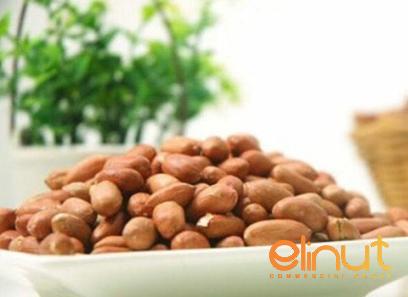
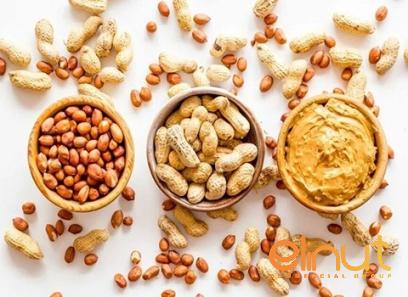
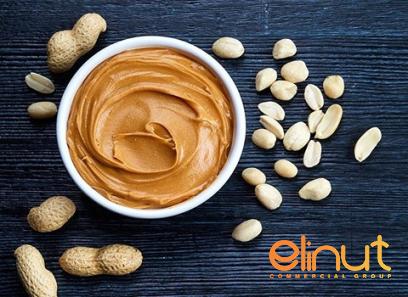
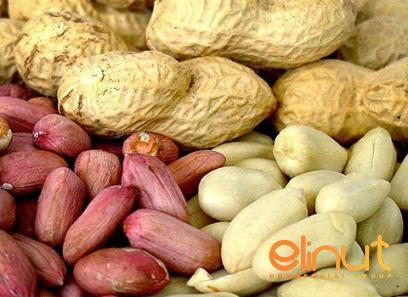
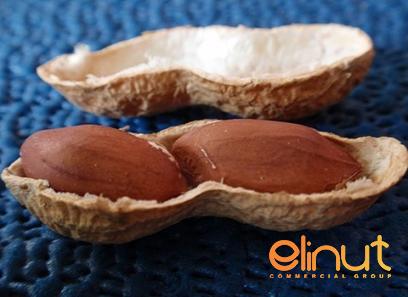
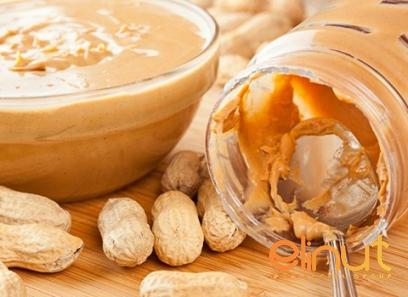
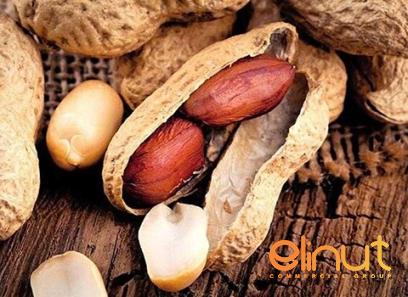
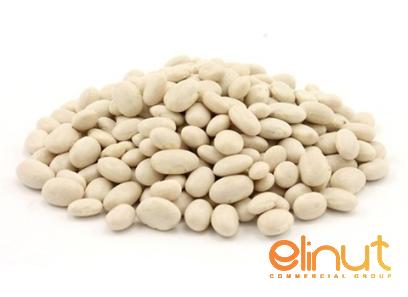
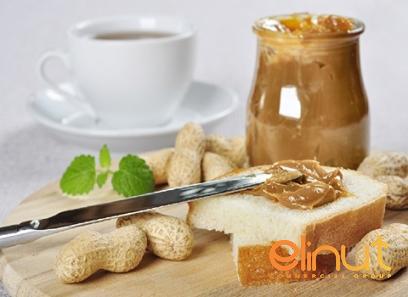
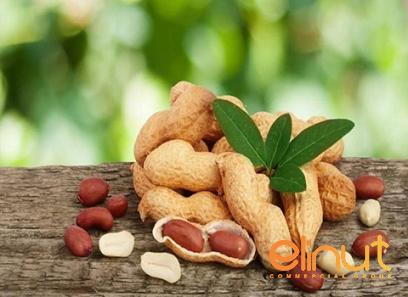
Your comment submitted.